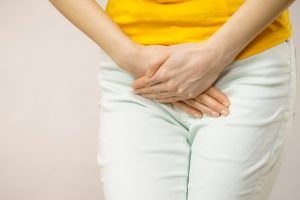 An estimated 25 million American women suffer from bladder problems, with many of them doing so in silence. And yet, with such a high number, shouldn’t it be a hot topic for discussion?
An estimated 25 million American women suffer from bladder problems, with many of them doing so in silence. And yet, with such a high number, shouldn’t it be a hot topic for discussion?
Urinary tract infections (UTIs) are one of the most common types of bladder problems, with some women experiencing a few of them throughout her lifetime.
Advertisement
Another big issue is incontinence, which is when a woman may experience leaks.
There are many causes of bladder problems including older age, pregnancy, poor urinary hygiene, underlying medical conditions, excess intake of coffee or other stimulants, and weak bladder muscles, to name a few.
Here are some tips and facts you need to know to keep your bladder healthy and reduce your risk of bladder-related problems.
7 Tips for a Healthy Bladder
Don’t pee ‘just in case’: Were you about to leave your house and thought, “I should go pee, just in case”? Our brain communicates with the bladder and vice versa to signal to you when you need to urinate — this is known as the micturition reflex. When we go urinate ‘just in case,’ we disrupt this process by sending false signals to the brain, saying that the bladder needs to empty, even if it isn’t very full. It’s actually best that you wait until that signal from the brain to the bladder is sent and you only empty a full bladder.
Continue to drink fluids, even if you always need to go: Many people with bladder problems reduce their intake of fluids, but this isn’t advised as it can lead to concentrated urine, which irritates the bladder so that you continue to feel the urge to go even though there isn’t much urine to release. Drinking fluids at a moderate pace throughout the day ensures that urine does not concentrate and that minerals in the body are well balanced.
Take a look in the toilet: Your pee can actually reveal a lot about your bladder and overall health. By taking note of the color and smell, you can find out your hydration level and possible any infection that you need to address with your doctor.
Avoid bladder irritating triggers: Certain foods and beverages can irritate the bladder, so avoiding them can help. Common triggers include coffee, processed meat, some dairy, spicy foods, tomatoes, some fruit, chocolate, alcohol, sugar substitutes, citrus fruit juices, and carbonated beverages. Each person is unique, so you may want to keep a food diary for a while to determine your unique triggers.
Advertisement
Don’t be ashamed to use products to help you: There are many products out there to help with leaks and bladder problems including pads and diapers. Although some people may be embarrassed to use such products, they’re very discreet and comfortable to wear. And with so many options, you can find a brand that best suits you.
Exercise your pelvic muscles: Strong muscles work better and this holds true for your bladder muscle. Doing Kegels can help keep your bladder muscles strong, which can prevent leaks and buy you more time to get to a bathroom when nature calls. The best part is that these contractions are so discreetly done you can do them throughout your day without anyone knowing!
Related:
- Prevent bladder infection: Natural ways and lifestyle tips to boost bladder health
- What your urine color and urine odor say about your health
